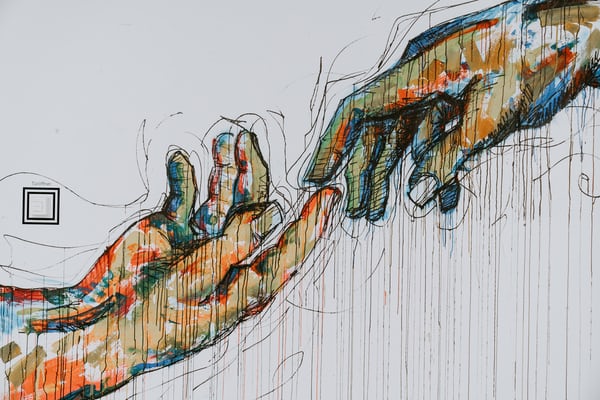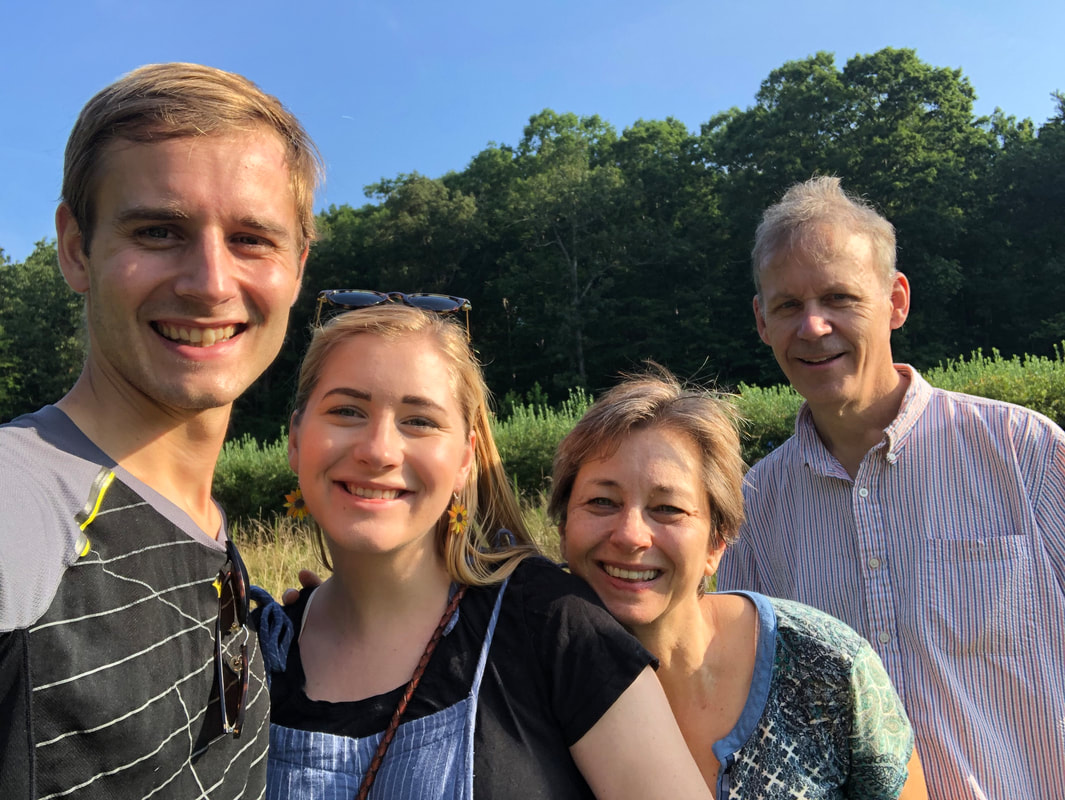|
"Social distancing" was very familiar to Jesus. Lepers lived their entire lives socially distancing, keeping away from others and never getting near to someone who wasn't already a leper, for fear of making the other person unclean. In Mark 1:40ff, a leper approaches Jesus, boldly declaring, "If you want to, you can make me clean." Jesus does want to heal the leper, but he gives the leper more than he asks for--he reaches out in compassion and touches him. The leper would never have held his hand out to Jesus, but Jesus reaches across the vast social distance between himself and this man, and not only heals him, but accepts him, greets him, gives him his care. Presence is powerful, and we are poignantly aware of the lack of it as we teach this month. Zoom ministry, as exciting as it was 4 months ago, is getting a little old for everyone. The ability to see big groups of people, break them into small groups for discussion, and in general have an on-line session with most of the mechanics of a live one-- well, the thrill of that new experience is gone, replaced with a lingering sense of disappointment at not being present in person. Nevertheless, Lisa and I are grateful for opportunities to teach multiple groups in Asia this summer. Here's what we've been doing this month:
With a Zoom class, one thing that is more difficult is getting to know people in the casual way it is possible to do in a live classroom setting. We have both sought several ways to build connection points, in introductory videos and emails, Whatsapp chats, etc. This Saturday we will discuss student-generated case studies on the topic of leadership development..Students have created a case studies from their own life and ministry experience so that we can learn from both success and failure, strengths and weaknesses. (I stressed in advance that a story that is all about how well everything worked with no points of tension or disappointment may make for a good testimony, but not a good case study!) Tuesday night we looked at Matthew 14, the story of Peter walking on water toward Jesus, as an example of "successful failure". The students shared that, in Malaysian/Asian cultural context, success is highly valued and there really is not any good model of considering failure successful, which means people are often risk avoidant because the cost of failure is seen to be too high. My goal is to help people "lean into redemptive failure" and to be willing to be a learner, even in front of their peers. I am looking forward to discussions of the student case studies. I've seen a few of them--they aren't due yet--and I know that they are ready to share openly and to learn together. Even though we cannot be in the same room, or greet each other as warmly as we would like, we can still both cross the ocean of cultural distance and the natural hesitations that make vulnerability in front of peers or leaders a challenge, and build relational connections through our shared work and learning together. Please join me in praying for these women and men of Kuala Lumpur as we gather on Saturday morning their time to learn from one another. Gratitude for Answered Prayer, and Prayer requests:
In Jesus, Rich and Lisa
0 Comments
Leave a Reply. |
Archives
April 2024
AuthorRich and Lisa Lamb Categories |


 RSS Feed
RSS Feed